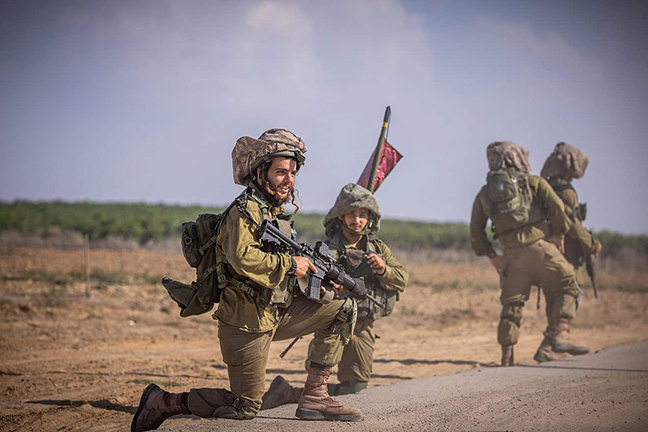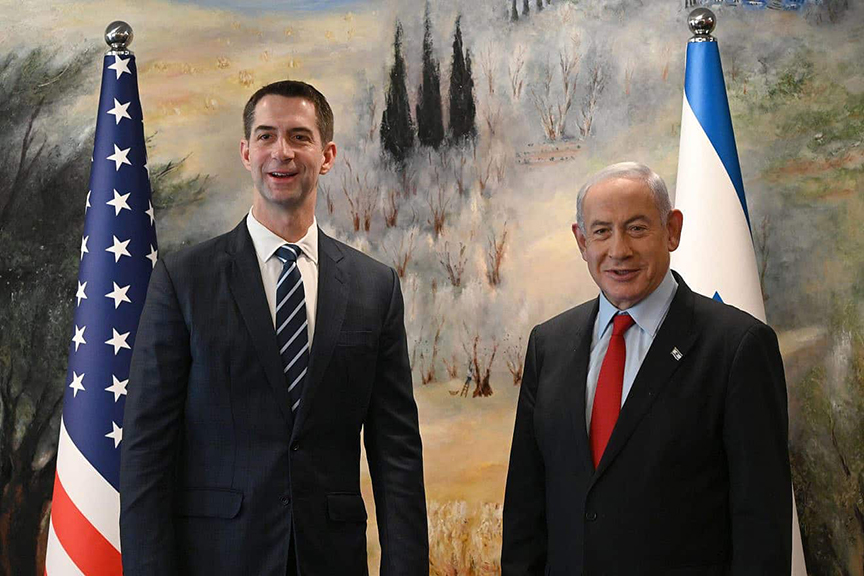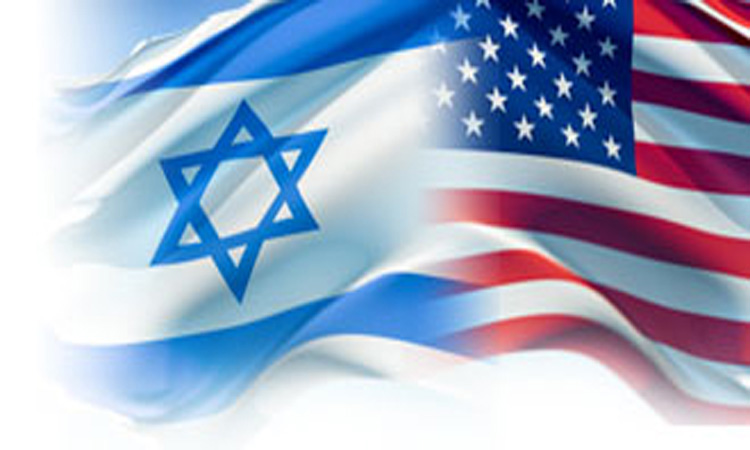U.S. looking at sanctions against Israel Defense Forces battalion

Israel Defense Forces soldiers of the Netzach Yehuda Battalion patrol near the Gaza border, Oct. 20, 2023. Photo by Yonatan Sindel/Flash90.
(JNS) — The Israel Defense Forces is not aware of possible U.S. sanctions against its Netzach Yehuda Infantry Battalion but is monitoring the situation, the military said on April 21, responding to reports that the Biden administration intends to blacklist the unit for alleged human rights abuses.
The army added that Netzach Yehuda soldiers are currently fighting Hamas terrorists in the Gaza Strip “with courage and professionalism while upholding the values and spirit of the IDF and the principles of international law.
“Over the past years, the battalion’s troops have been at the core of operational activities, working around the clock to maintain the security of the citizens of the State of Israel, in addition to being a leading battalion that integrates haredi soldiers in the IDF,” added the military.
If and when the White House announces sanctions, the IDF will “investigate any unusual event in a matter-of-fact manner and in accordance with the law.”
Netzach Yehuda is an exclusively male, ultra-Orthodox battalion that, until late 2022, served in the Jordan Valley and Samaria. It has faced accusations of abuse, most notably in the case of 78-year-old Palestinian-American Omar As’ad, who in 2022 died after being detained by the battalion.
Under the reported sanctions, Netzach Yehuda would be barred from receiving U.S. weaponry, training with American soldiers or taking part in any activities funded by Washington. If the administration sanctions the unit, it would be the first time the U.S. has taken such a step against the Israeli military.
The restrictions would fall under the banner of the Leahy Laws, which prohibit U.S. military assistance to individuals or units of security forces that commit gross violations of human rights and have not been held accountable.
“Sanctions must not be imposed on the Israel Defense Forces,” Prime Minister Benjamin Netanyahu wrote in Hebrew on X on April 20.
“In recent weeks, I have been working against the imposition of sanctions on Israeli citizens, including in my conversations with senior U.S. government officials,” he continued.
“At a time when our soldiers are fighting terrorist monsters, the intention to impose a sanction on a unit in the IDF is the height of absurdity and a moral low,” said Netanyahu. “The government I head will act by all means against these moves.”
U.S. Secretary of State Antony Blinken hinted at a weekend news conference in Italy that sanctions were imminent.
“On Israel, there are reports that your department has made recommendations to cut military aid to certain Israeli units for possible human rights violations in the West Bank, before October 7. Will you take action on those recommendations?” asked Olivia Gazis of CBS News.
“I think it’s fair to say that you’ll see results very soon,” Blinken said. “I’ve made determinations; you can expect to see them in the days ahead.”
Minister-without-Portfolio Benny Gantz, a member of Israel’s War Cabinet, urged Blinken to reconsider the sanctions during a phone call on April 21, his office said in a readout of the conversation.
Sanctioning the battalion will harm Israel’s international standing as it fights Hamas terrorists in Gaza, and there is no justification for the U.S. to do so, Gantz told Washington’s top diplomat.
Writing in Hebrew on social media, he called the battalion “an integral part of the IDF,” which falls under the jurisdiction of “strong and independent” courts that are capable of dealing with alleged violations and abuses.
“We have great respect for our American friends, but imposing sanctions on the unit is a dangerous precedent and sends the wrong message to our shared enemies at a time of war,” Gantz wrote. He pledged that he would “take action so this decision does not pass.”
The Israeli judicial system is strong and independent, the former IDF chief of staff stressed, adding that all units are subject to the military’s code of conduct and act in accordance with international law.



